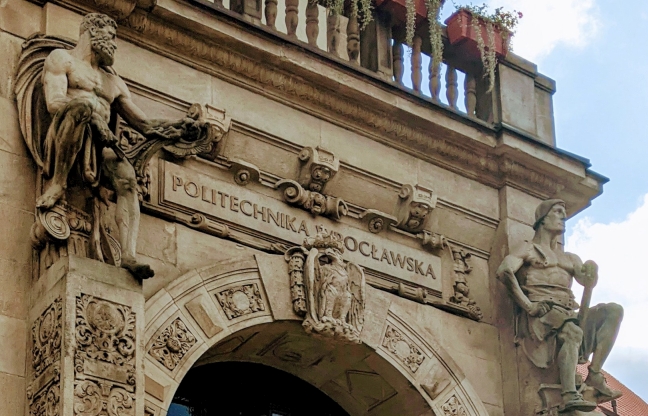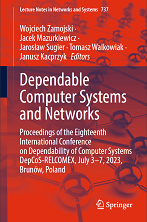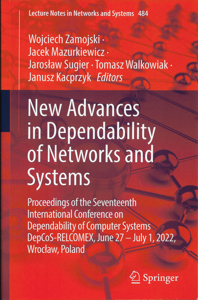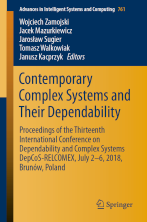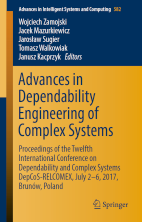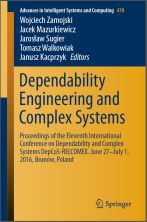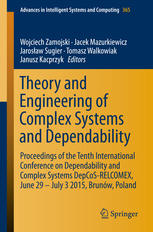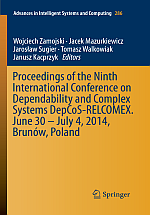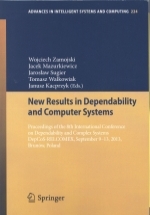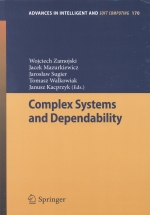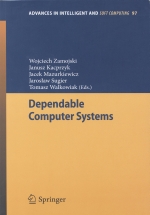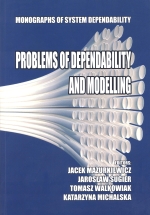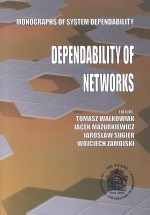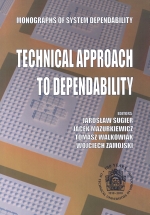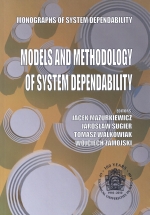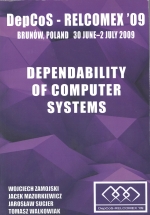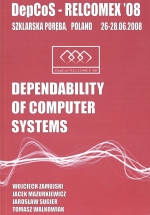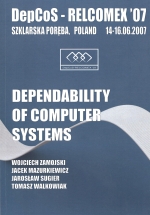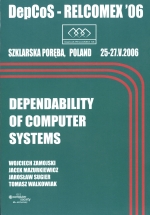Zamojski Wojciech (Chairman)
Wroclaw University of Science and Technology, Wroclaw, Poland
Al-Dahoud Ali
Al-Zaytoonah University, Amman, Jordan
Agbinya Johnson
School, Information Technology & Engineering, Melbourne, Australia
Affenzeller Michael
Upper Austria University of Applied Sciences, Austria
Baez Patricio García
Universidad de La Laguna, San Cristóbal de La Laguna, Spain
Białas Andrzej
Research Network ŁUKASIEWICZ - Institute of Innovative Technologies EMAG, Katowice, Poland
Bluemke Ilona
Warsaw University of Technology, Warsaw, Poland
Bogalecka Magdalena
Gdynia Maritime University, Gdynia, Poland
Bożejko Wojciech
Wroclaw University of Science and Technology, Wroclaw, Poland
Caban Dariusz
Wroclaw University of Science and Technology, Wroclaw, Poland
Chen De-Jiu
KTH Royal Institute OF Technology, Sweden
Cichoń Jacek
Wroclaw University of Science and Technology, Wroclaw, Poland
Coolen Frank
Durham University, Durham, UK
Daszczuk Wiktor B.
Warsaw University of Science and Technology , Warsaw, Poland
Drabowski Mieczysław
Cracow University of Technology, Cracow, Poland
Flammini Francesco
University of Linnaeus, Sweden
Galambos Peter
Obuda University, Hungary
Gil Perez Manuel
University of Murcia, Murcia, Spain
Grabski Franciszek
Polish Naval Academy, Gdynia, Poland
Grakowskis Aleksander
Transport and Telecommunication Institute, Riga, Latvia
Gulacsi Laszlo
Obuda University, Hungary
Ito Atsushi
Chuo University, Tokyo, Japan
Jagielski Dariusz
4th Military Hospital, Wroclaw, Poland,
Jeleń Łukasz
Wroclaw University of Science and Technology, Wroclaw, Poland
Kabashkin Igor
Transport and Telecommunication Institute, Riga, Latvia
Kacprzyk Janusz
Polish Academy of Sciences, Warsaw, Poland
Kaługa Karol
DSW University of Lower Silesia in Wroclaw, Poland
Klonowski Marek
Wroclaw University of Science and Technology, Wroclaw, Poland
Koutras Vasilis P.
University of the Aegean, Chios, Greece
Kharchenko Vyacheslav S.
National Aerospace University "KhAI", Kharkov, Ukraine
Klempous Ryszard
Wroclaw University of Science and Technology, Wroclaw, Poland
Kołowrocki Krzysztof
Gdynia Maritime University, Gdynia, Poland
Koorosh Aslansefat
Hull University, Hull, UK
Kotulski Leszek
AGH University of Science and Technology, Krakow, Poland
Kovacs Levente
Obuda University, Hungary
Kozak Karol
DSW University of Lower Silesia, Wrocław, Poland
Krawczyk Henryk
Gdansk University of Technology, Gdansk, Poland
Król Dariusz
Wroclaw University of Science and Technology, Wroclaw, Poland
Krzychała Sławomir
DSW University of Lower Silesia, Wrocław, Poland
Kucharski Andrzej
Wroclaw University of Science and Technology, Wroclaw, Poland
Kużelewska Urszula
Bialystok University of Technology, Białystok, Poland
Lastovetsky Alexey
University College Dublin, Dublin, Ireland
Magott Jan
Wroclaw University of Science and Technology, Wroclaw, Poland
Maciejewski Henryk
Wroclaw University of Science and Technology, Wroclaw, Poland
Mazurkiewicz Jacek
Wroclaw University of Science and Technology, Wroclaw, Poland
Młyńczak Marek
Wroclaw University of Science and Technology, Wroclaw, Poland
Para Piotr
DSW University of Lower Silesia, Wrocław, Poland
Rafajłowicz Ewaryst
Wroclaw University of Science and Technology, Wroclaw, Poland
Rudas Imre
Óbuda University, Hungary
Rodwald Przemysław
Polish Naval Academy, Gdynia, Poland
Rozenblit Jerzy
Arizona University, Tucson, USA
Scherer Rafał
Czestochowa University of Technology, Czestochowa, Poland
Siergiejczyk Mirosław
Warsaw University of Technology, Warsaw, Poland
Smutnicki Czesław
Wroclaw University of Science and Technology, Wroclaw, Poland
Sobieski Ścibór
DSW University of Lower Silesia, Wrocław, Poland
Sobolewski Robert
Bialystok University of Technology, Bialystok, Poland
Sosnowski Janusz
Warsaw University of Technology, Warsaw, Poland
Suarez-Araujo Carmen Paz
Universidad de Las Palmas de Gran Canaria, Spain
Sugier Jarosław
Wroclaw University of Science and Technology, Wroclaw, Poland
Szilagyi Laszlo
Sapientia Hungarian University of Transylvania, Romania
Walter Max
Siemens, Germany
Walkowiak Tomasz
Wroclaw University of Science and Technology, Wroclaw, Poland
Werewka Jan
College of Economics and Computer Science, Kraków, Poland
Więckowski Tadeusz
Wroclaw University of Science and Technology, Wroclaw, Poland
Wolfinger Bernd E.
University of Hamburg, Hamburg, Germany
Xie Min
City University of Hong Kong, Hong Kong SAR
Yatskiv Irina
Transport and Telecommunication Institute, Riga, Latvia
Ziętara Wiktor
DSW University of Lower Silesia, Wrocław, Poland
Zyśko Dorota
Wroclaw Medical University, Poland

